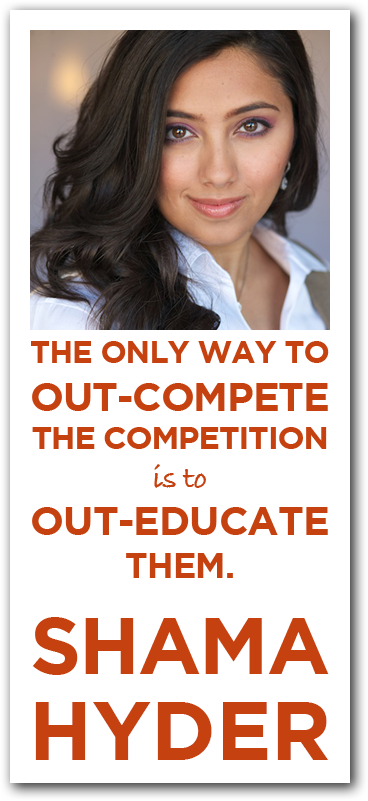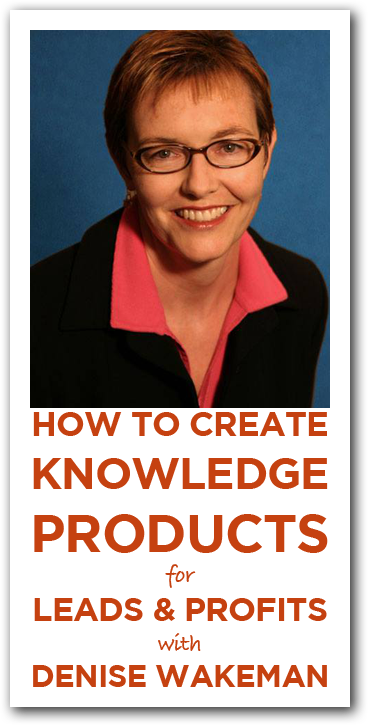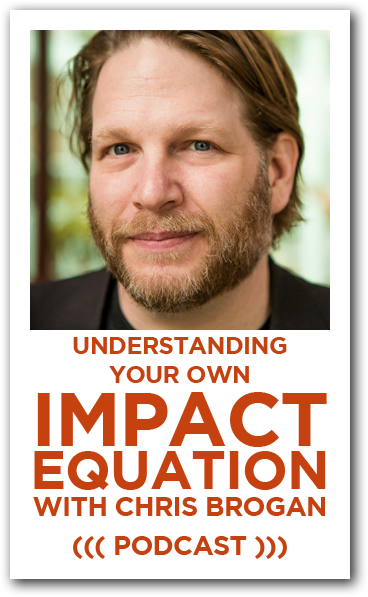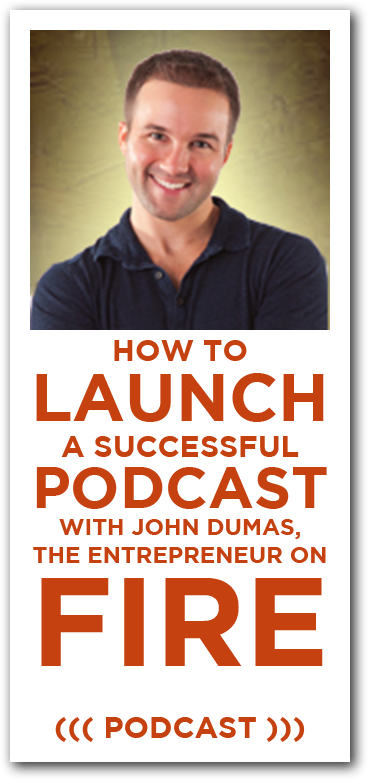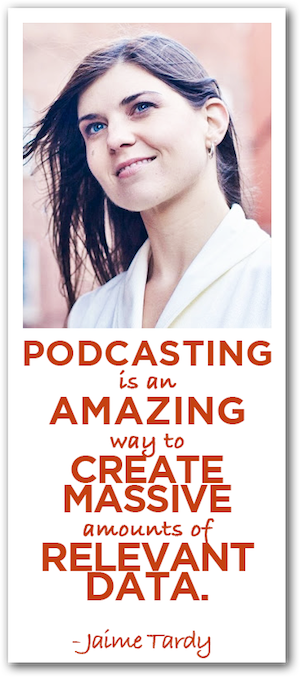 A lot of small businesses struggle with getting a grasp on podcasting. Do you know how to identify your target market so you can start a relevant podcast?
A lot of small businesses struggle with getting a grasp on podcasting. Do you know how to identify your target market so you can start a relevant podcast?
Do you know how to tie your blog or site into promoting and posting your podcast?
If you don’t, you’re not alone. Many small businesses don’t know how to use podcasting to increase their relevant content and promote it to their audience. That’s why we asked Jaime Tardy, podcasting pro and author of The Eventual Millionaire, in this week’s episode of The Marketing Agents Podcast.
Podcast: Play in new window | Download
Subscribe: RSS
Big Ideas:
- What’s your martial arts of choice?
- Pinan-Do. I’m a brown belt, second queue.
- I can break three or four boards of wood with one hit!
- How did you get started with your podcast?
- I started a blog, but didn’t like writing, and my group suggested starting a podcast.
- I do what I love instead of writing.
- I’m much better at what I do now since I can express myself best with audio and video.
- What made you choose video over audio?
- One of my interviewees told me to do a video podcast, and that I should use my looks to help.
- It helps me speak on camera and in person.
- A lot of logistical things are better – Youtube, iTunes x2 (audio AND video), you get to see the guests a lot better.
- It’s easier to make a connection with your guest.
- Talking over people happens more in just audio – you don’t get the physical cues.
- Podcasting seems to be an item small businesses struggle with. How should they get into that? Can you address their doubts?
- Find out who your target market is – do they use podcasts or technology?
- It’s an amazing way to create massive amounts content.
- If your market does “get” digital media, then definitely do it.
- iTunes and Stitcher are ways to get out to your audience.
- Every interview I do is about 17,000 words of content.
- You start to build your framework of what you want to talk about.
- When you put your podcast together, how does that interact with your blog/site?
- Your podcast does have to be a post, and iTunes and Stitcher will pick it up.
- I use Libsyn for audio, but video can be maxed out quicker. The cost raises,.
- I don’t use Amazon S3 since it’s based on data, and if you get a big audience you get a big bill.
- What other ways can you let people know you have a podcast and to tune in?
- You’re trying to get eyeballs, so try to get on the new and noteworthy list in iTunes. I got on that list and got 1,000 downloads a day!
- It depends on your category and list.
- If you already have a decent email list, it’s very similar to any other marketing plan. Have them subscribe as much as they can.
- I have Millionaire Monday so they get a new post every week and they expect it.
- Everyone listens on a different platform, iTunes, Stitcher, SoundCloud, YouTube, blog, etc.
- When I post my podcast on Libsyn, do I have to take an extra step to put it on Soundcloud?
- Soundcloud can be a host or aggregator.
- You can set up your feed through Libsyn, and you should be able to auto-post to Soundcloud.
- It depends on how your auto-publish settings are set.
- Are you doing any Facebook or Twitter paid ads?
- Most of my stuff is organic.
- I do a lot of YouTube stuff, but no paid right now.
- Are you monetizing your shows?
- What I do is I make a point of saying I don’t want sponsorships on my show.
- I do have one sponsor that doesn’t require me to mention them.
- I have a link on my site, but I don’t have to mention it.
- In general, I don’t do any specific ads on my podcast.
- What I do is ask people to subscribe, signup, etc.
- I’d rather have my audience go the route of buying my own products.
- Blogs get comments, Facebook gets interactions, but podcasts are one of the least social platforms. How do you get engagement on your podcasts?
- Most of the time people are listening to podcasts in the car, on a run, or not near a computer. It’s an effort to comment.
- It doesn’t mean you’re not connecting with your audience, but the biggest difference is that you’re in their head. I’m technically in your head. The engagement level on a personal level is huge. It’s much more personal.
- It makes a big engagement difference, but it’s hard to measure.
- I gave away one of Michael Hyatt’s courses on the podcast, and required a comment, but it was a great success.
- Incentives can bring people back to your site to engage or comment on your podcast.
Once you get them to your site, the next step is to get them to subscribe once they’re there.
- I have a bunch of lead magnets through LeadPages. One of the things that LeadPages does is put a specific lead magnet on a podcast transcript so they have to signup to get a transcript.
- Your podcast helped you win a book deal. How did that all come about?
- You can’t really pitch a book unless you know someone.
- I made a goal to publish a book.
- I chatted with a bunch of people for advice, and I realized I wanted to traditionally publish a book to be able to charge more for speaking deals.
- My publisher noticed I already had a platform and audience. It’s about how big your audience is.
- I talked to a few literary agents and found one great for my niche.
- They told me that they liked me so much because I had a lot of press on TV and talk shows.
Juicy Links:
- Check out Jaime Tardy’s site Eventual Millionaire.
- Google Jaime Tardy to find random weird stuff!
- Check out The Eventual Millionaire book site to get a free starter kit.
- Check out Libsyn.
- Check out LeadPages.
- And be sure to leave a review for The Marketing Agents on iTunes!
